The world isn’t falling apart as fast as it seems—real progress is happening.

It’s easy to feel like climate change is an unstoppable disaster. Every day, headlines scream about rising temperatures, extreme weather, and the failures of governments and corporations to take action. Doomscrolling makes it seem like nothing is getting better, and while there’s still a long way to go, that’s not the whole story. Real wins are happening—just not always in the places that make the news.
Around the world, scientists, activists, and everyday people are making progress in ways that actually matter. Fossil fuels are losing their dominance, wildlife is rebounding, plastic bans are kicking in, and renewable energy is growing faster than ever. No single solution will fix everything overnight, but these victories prove that change is happening. So before you give in to climate despair, take a look at these 14 wins that show the fight for the planet isn’t just alive—it’s making real strides.
1. Fossil fuels are finally losing their VIP status.

For decades, oil, gas, and coal were the undisputed kings of the energy world. But guess what? Their reign is coming to an end. In 2023, global investment in clean energy reached $1.77 trillion, surpassing fossil fuel spending for the first time, according to BloombergNEF.
Banks are backing out of oil and gas projects, governments are cutting subsidies, and even major energy companies are scrambling to reinvent themselves. Not because they suddenly care about the planet—but because they have no choice.
Solar and wind are now cheaper than coal in many places, making fossil fuels look like an overpriced, outdated habit. Coal plants are closing at record speeds, electric cars are taking over the roads, and some countries are reaching emissions goals years ahead of schedule. The fossil fuel industry isn’t dead yet, but it’s losing steam fast.
2. The ozone layer is making a comeback—without a PR team.

Remember when everyone freaked out about the hole in the ozone layer? Turns out, we actually did something about it, and it’s working. Per the Climate and Clean Air Coalition, The 1987 Montreal Protocol banned ozone-destroying chemicals like CFCs (RIP, old-school hairspray), and now scientists say the ozone layer is healing way faster than expected.
This isn’t just some feel-good science story—it’s proof that when the world gets its act together, big environmental problems can be reversed. Some parts of the ozone layer could be fully restored within a few decades, and without this fix, we’d be looking at way more skin cancer, crop failures, and extreme weather. Oh, and bonus: those banned chemicals were also making climate change worse, so we unknowingly helped curb global warming in the process. Not bad for a problem most people have forgotten about.
3. Single-use plastic is getting canceled worldwide.
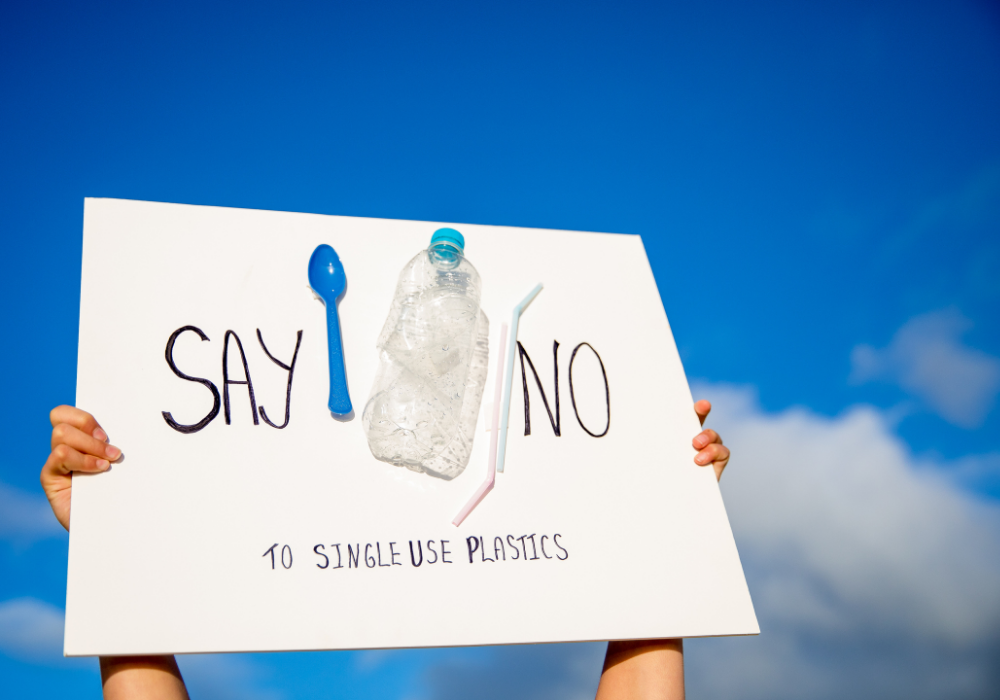
Plastic bags, straws, and takeout containers had a good run, but their time is up. Governments all over the world are cracking down on single-use plastics, and corporations are panicking. The European Union’s official site describes how they curb plastic cutlery and packaging, Canada and India put restrictions on plastic bags, and even U.S. cities are rolling out new laws.
The days of mindlessly grabbing a plastic cup and tossing it minutes later? Numbered.
It’s not just about getting rid of plastic—it’s about forcing entire industries to rethink packaging and waste. Companies like Coca-Cola and Unilever are finally feeling the heat, and reusable alternatives are becoming the norm. Sure, bans on straws and bags won’t solve plastic pollution overnight, but they send a clear message: single-use plastics are on their way out, and businesses better start keeping up.
4. Electric cars are officially mainstream—gas is looking outdated.

There was a time when electric cars were written off as expensive, inconvenient, and only for hardcore environmentalists. Fast-forward to today, and they’re outselling gas-powered cars in multiple countries. Major automakers are ditching combustion engines, charging stations are everywhere, and used EV markets are booming. Even skeptics are realizing that EVs aren’t just better for the planet—they’re cheaper to maintain, quieter to drive, and ridiculously fun to accelerate.
Battery tech has come so far that range anxiety is basically a thing of the past. Some countries, like Norway, are already seeing EVs dominate new car sales, and governments are setting deadlines to phase out gas-powered vehicles altogether. The shift isn’t coming—it’s already here. And for the first time, driving electric isn’t just responsible—it’s cool.
5. The Amazon isn’t going down without a fight.

Deforestation in the Amazon once seemed unstoppable, but in 2023, something incredible happened—Brazil slashed deforestation rates by nearly 50%. Stricter policies, tougher enforcement against illegal logging, and Indigenous land protections are helping the Amazon breathe again. It’s not a total victory, but it’s a massive shift in the right direction.
The Amazon is a powerhouse for global climate stability, absorbing carbon and housing millions of species. Its destruction has fueled climate change, but these recent protections show that governments can step up when the pressure is on.
Land grabbing and illegal activity still threaten the rainforest, but this progress proves that protecting the Amazon isn’t just possible—it’s happening. With the right momentum, the world’s largest rainforest could become one of climate action’s biggest success stories.
6. Indigenous land rights are turning the tables on deforestation.
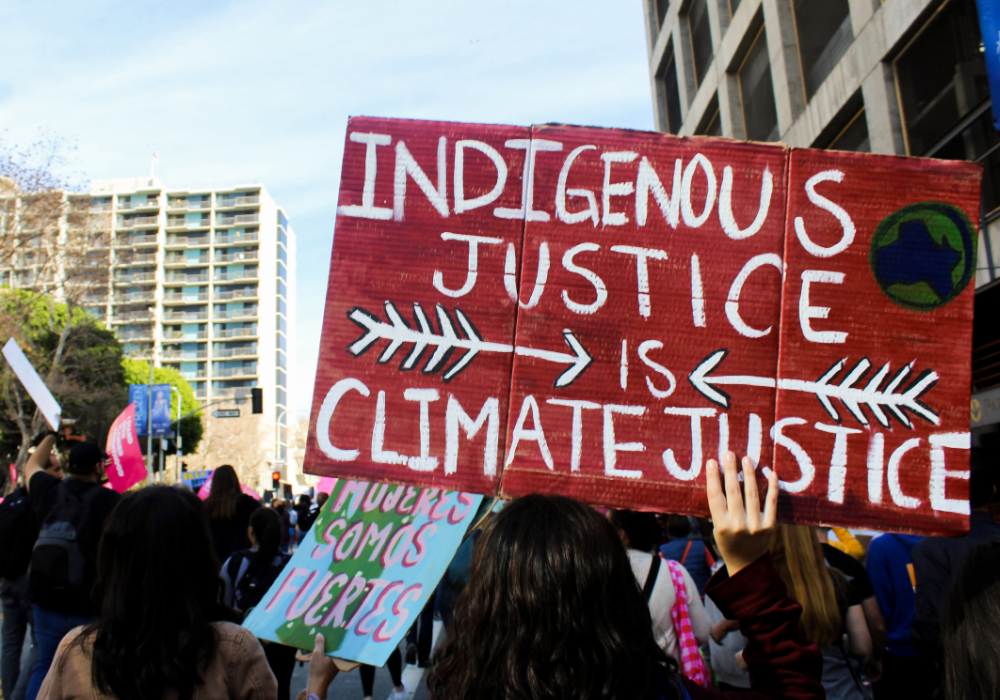
Governments and corporations have bulldozed forests for profit for decades, but they’re facing an unexpected challenge—Indigenous communities winning legal control over their land. Studies show that deforestation rates are significantly lower on Indigenous-managed lands compared to government-protected areas.
More countries are recognizing this, giving Indigenous communities legal authority over their ancestral lands. Brazil, Australia, and Canada have all taken steps to restore Indigenous land rights, and the benefits go beyond just forests. These protections help preserve biodiversity and fight climate change by keeping carbon stored in trees and soil. Indigenous knowledge has been ignored for too long, but now, it’s leading some of the most effective conservation efforts in history.
7. Cities are ditching cars and embracing people.

Urban life used to revolve around cars, but that’s starting to change. Some of the world’s biggest cities are proving that streets should work for people, not just vehicles. Low-emission zones, expanded bike lanes, and pedestrian-friendly redesigns are making cities greener, cleaner, and easier to navigate without a car.
Paris is leading with its “15-minute city” model, ensuring residents can access work, groceries, parks, and entertainment without driving. Amsterdam and Copenhagen continue to expand cycling infrastructure, setting a standard for car-free commuting. Even cities known for traffic congestion, like Los Angeles and New York, are rolling out major public transit improvements. Air pollution is dropping, carbon emissions are shrinking, and urban spaces are becoming more livable. The car-free future isn’t a dream—it’s already happening.
8. Solar power is now the cheapest guest at the energy party.
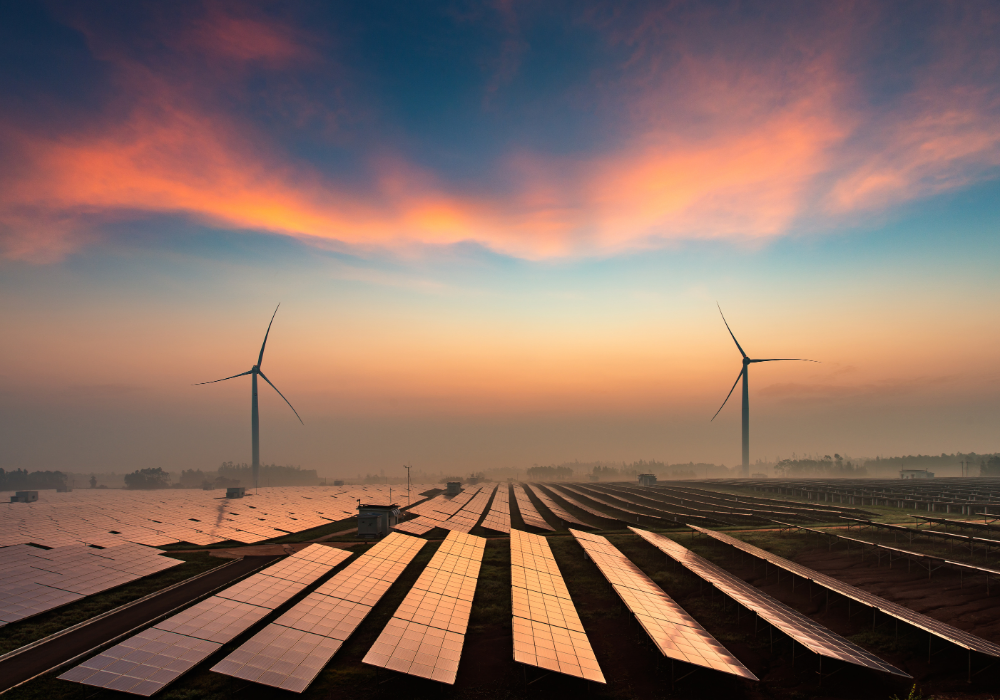
Solar energy has gone from an expensive novelty to the most affordable power source in history. The cost of solar panels has dropped by more than 80% in the last decade, making it the go-to choice for powering homes, businesses, and entire cities.
Countries like China, India, and the U.S. are leading the charge, installing massive solar farms that generate electricity at a fraction of the cost of coal or gas. Some regions are even producing too much solar power, forcing governments to rethink how to store and distribute energy more efficiently.
Battery technology is advancing, power grids are adapting, and fossil fuels are becoming harder to justify. The sun isn’t just rising—it’s reshaping the entire energy economy.
9. The Great Barrier Reef is proving it’s tougher than we thought.

The Great Barrier Reef has endured severe coral bleaching, leaving large sections damaged. Despite this, some areas are showing signs of resilience and even recovery. Conservation efforts, marine protections, and natural adaptation are helping coral ecosystems rebound faster than expected.
Scientists aren’t leaving anything to chance. Projects experimenting with heat-resistant coral strains and assisted breeding programs are gaining traction. Climate change is still the biggest threat, but this progress proves the reef isn’t beyond saving. Stronger protections, reduced pollution, and global efforts to curb warming will determine whether this comeback continues. The world can’t afford to take this recovery for granted.
10. A global treaty to end plastic pollution is finally on the table.
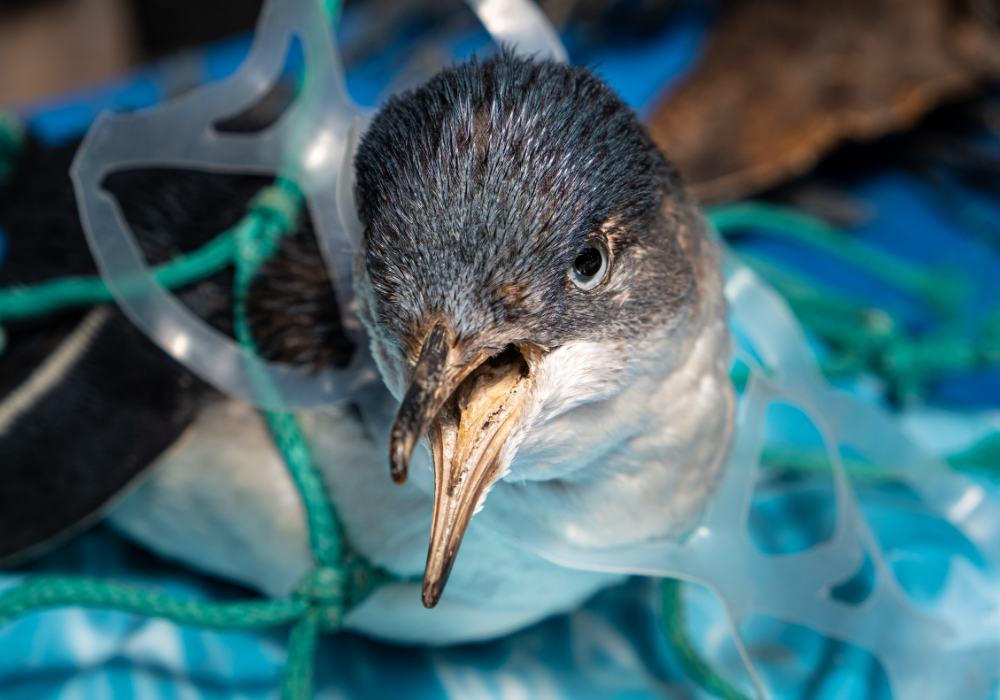
Plastic pollution has been an environmental crisis for years, but world leaders are finally treating it like one. The United Nations is negotiating a legally binding treaty to curb plastic production, regulate waste, and force industries to take responsibility for the pollution they create.
This treaty is aiming beyond just banning straws. It’s targeting the corporations producing millions of tons of plastic every year. If successful, it could completely reshape how plastic is made, used, and disposed of.
Countries would be required to cut plastic waste, develop sustainable alternatives, and stop the flood of pollution entering oceans. The Montreal Protocol saved the ozone layer, and this treaty has the potential to do the same for plastic pollution.
11. Nature is getting its own legal rights—and winning in court.

Rivers, forests, and entire ecosystems are now being recognized as legal entities in some countries, giving them the power to fight back against environmental destruction. Ecuador, New Zealand, and India are leading the way, granting personhood status to key natural areas. This means that lawsuits can be filed on behalf of nature itself, holding corporations and governments accountable for harming the environment.
This legal strategy is already making an impact. In Ecuador, a court ruled in favor of a cloud forest threatened by mining, setting a precedent that could protect countless ecosystems. These cases are forcing companies to think twice before polluting or deforesting, shifting the balance of power away from industries that have long exploited natural resources. The idea is simple: if corporations can have legal rights, why shouldn’t the planet?
12. Lab-grown meat is coming for the burger industry.

The way the world produces meat is a climate disaster, but a major shift is underway. Scientists have figured out how to grow real meat without raising or slaughtering animals, and some countries have already approved it for sale. This isn’t plant-based imitation—it’s real meat, made from cultured animal cells, without the environmental destruction.
The potential benefits are massive. Traditional meat production is responsible for nearly 15% of global greenhouse gas emissions, not to mention deforestation and water pollution. Lab-grown meat could eliminate many of these issues while still delivering the same taste and texture as conventional beef or chicken. Scaling up production will take time, but as costs drop and technology improves, lab-grown meat could become a mainstream option. The burger of the future might not require a single cow.
13. Farmers are swapping chemicals for climate-friendly soil.

Industrial farming has wreaked havoc on the planet, stripping soil of nutrients and pumping out emissions. But a growing number of farmers are ditching chemical-heavy methods in favor of regenerative agriculture, which restores soil health, captures carbon, and reduces pollution. Instead of relying on synthetic fertilizers, they’re planting cover crops, rotating fields, and using compost to build resilient farmland.
Regenerative practices don’t just improve soil—they also help fight climate change. Healthy soil pulls carbon from the atmosphere, acting as a powerful tool against global warming. Major food companies are taking notice, investing in regenerative supply chains and partnering with farmers who use sustainable methods. The movement is gaining traction, proving that farming doesn’t have to come at the expense of the environment.
14. The climate movement isn’t backing down—it’s getting louder.
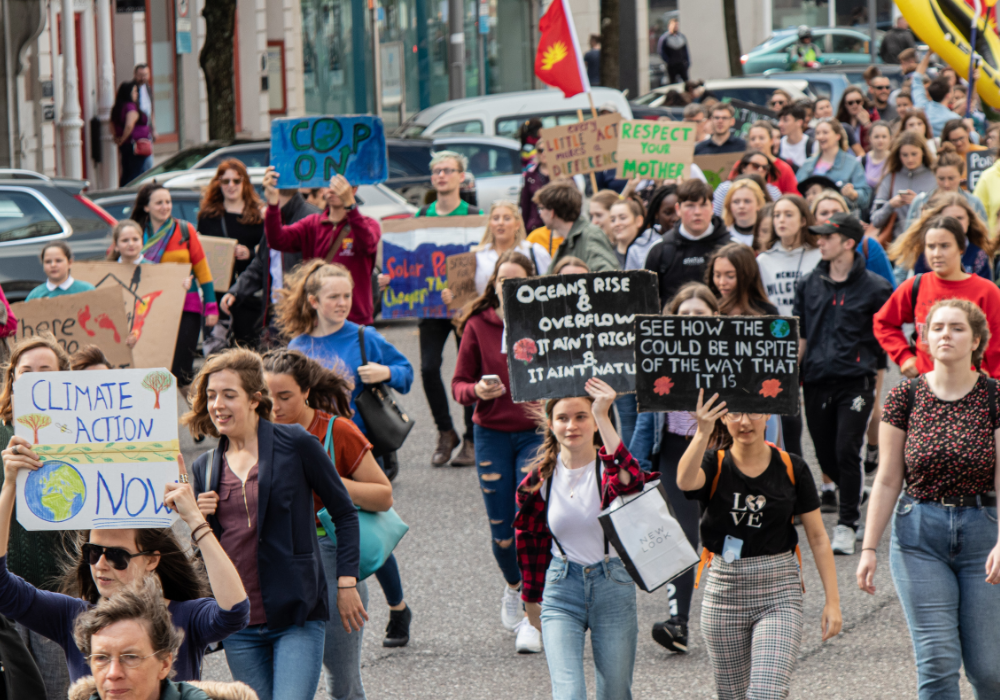
Governments and corporations have tried to delay climate action for decades, but they’re running out of time. Protests, lawsuits, and policy demands are forcing climate issues into the spotlight like never before. Activists, scientists, and even everyday people are making it clear that inaction is no longer an option.
This pressure is working. More climate policies are being passed, fossil fuel projects are being canceled, and courts are ruling against companies that violate environmental laws. Youth-led movements are challenging world leaders, while legal cases are holding industries accountable for decades of pollution. The fight isn’t just continuing—it’s accelerating. Climate despair is easy to fall into, but the reality is clear: the movement for change is stronger than ever.
